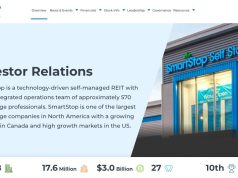Crypto Exchange Binance Founder & ex-CEO Changpeng Zhao Fortune at $39 Billion, Sentenced to 4 Months Jail after Pleading Guilty to Money Laundering in 2023 November
4th May 2024 | Hong Kong
Crypto exchange Binance founder & ex-CEO Changpeng Zhao (Canadian) fortune is at around $39 billion, and has been sentenced to 4 months jail after pleading guilty to money laundering in 2023 November, while United States prosecutors had proposed 3 years jail sentence (Federal sentencing guidelines is a maximum of 18 months). In 2023 November, Crypto exchange Binance had been fined $4.3 billion for money-laundering with founder & CEO Changpeng Zhao (Canadian) pleading guilty, resigning as CEO (21/11/23), paying $50 million of the fine, and facing less than 18 months jail. Of the $4.3 billion fine, Binance will pay a criminal fine of $1.8 billion and forfeit $2.5 billion. In the judgement, Binance had failed to report more than 100,000 suspicious transactions. With Changpeng Zhao resignation, Binance Global Head of Regional Markets Richard Teng has been appointed as Binance new CEO. Prior to joining Binance, Richard Teng was the CEO of the Financial Services Regulatory Authority at Abu Dhabi Global Market (ADGM), Chief Regulatory Officer of the Singapore Exchange (SGX), and Director of Corporate Finance at Singapore central bank Monetary Authority of Singapore (MAS). United States Department of Justice: “Binance Holdings Limited (Binance), the entity that operates the world’s largest cryptocurrency exchange, Binance.com, pleaded guilty today and has agreed to pay over $4 billion to resolve the Justice Department’s investigation into violations related to the Bank Secrecy Act (BSA), failure to register as a money transmitting business, and the International Emergency Economic Powers Act (IEEPA). Binance’s founder and chief executive officer (CEO), Changpeng Zhao, a Canadian national, also pleaded guilty to failing to maintain an effective anti-money laundering (AML) program, in violation of the BSA and has resigned as CEO of Binance. Binance’s guilty plea is part of coordinated resolutions with the Department of the Treasury’s Financial Crimes Enforcement Network (FinCEN) and Office of Foreign Assets Control (OFAC) and the U.S. Commodity Futures Trading Commission (CFTC). According to court documents, Binance admitted to prioritizing growth and profits over compliance with U.S. law. Binance launched in 2017 and focused on attracting high-volume customers, including U.S.-based customers. Binance quickly became the largest cryptocurrency exchange in the world, with the greatest share of its customers coming from the United States. As a result of serving U.S. customers, Binance was required to register with FinCEN as a money services business and to implement an effective AML program that was reasonably designed to prevent Binance from being used to facilitate money laundering. Binance chose not to comply with U.S. law and failed to implement controls and procedures to prevent money laundering. Binance also did not implement controls that would have prevented U.S. customers from conducting transactions with customers in sanctioned jurisdictions, despite knowing that the system it used to match customers for transactions would necessarily cause transactions in violation of IEEPA. Instead of complying with U.S. law, in 2019, Binance announced that it would block U.S. customers and launched a separate U.S. exchange, Binance.US.” Crypto exchange Binance founder & ex-CEO Changpeng Zhao personal fortune has increased by $25 billion to $37 billion in 2023. More info below:
“ Crypto Exchange Binance Founder & ex-CEO Changpeng Zhao Fortune at $39 Billion, Sentenced to 4 Months Jail after Pleading Guilty to Money Laundering in 2023 November “
Crypto Exchange Binance Founder & ex-CEO Changpeng Zhao Sentenced to 4 Months Jail after Pleading Guilty to Money Laundering in 2023 November, Crypto Exchange Binance Fined $4.3 Billion for Money-Laundering, Changpeng Zhao Resigned as CEO & to Pay $50 Million of the Fine, Binance Failed to Report More than 100,000 Suspicious Transactions

1st May 2024 – Crypto exchange Binance founder & ex-CEO Changpeng Zhao (Canadian) has been sentenced to 4 months jail after pleading guilty to money laundering in 2023 November, while United States prosecutors had proposed 3 years jail sentence (Federal sentencing guidelines is a maximum of 18 months). In 2023 November, Crypto exchange Binance had been fined $4.3 billion for money-laundering with founder & CEO Changpeng Zhao (Canadian) pleading guilty, resigning as CEO (21/11/23), paying $50 million of the fine, and facing less than 18 months jail. Of the $4.3 billion fine, Binance will pay a criminal fine of $1.8 billion and forfeit $2.5 billion. In the judgement, Binance had failed to report more than 100,000 suspicious transactions. With Changpeng Zhao resignation, Binance Global Head of Regional Markets Richard Teng has been appointed as Binance new CEO. Prior to joining Binance, Richard Teng was the CEO of the Financial Services Regulatory Authority at Abu Dhabi Global Market (ADGM), Chief Regulatory Officer of the Singapore Exchange (SGX), and Director of Corporate Finance at Singapore central bank Monetary Authority of Singapore (MAS). United States Department of Justice: “Binance Holdings Limited (Binance), the entity that operates the world’s largest cryptocurrency exchange, Binance.com, pleaded guilty today and has agreed to pay over $4 billion to resolve the Justice Department’s investigation into violations related to the Bank Secrecy Act (BSA), failure to register as a money transmitting business, and the International Emergency Economic Powers Act (IEEPA). Binance’s founder and chief executive officer (CEO), Changpeng Zhao, a Canadian national, also pleaded guilty to failing to maintain an effective anti-money laundering (AML) program, in violation of the BSA and has resigned as CEO of Binance. Binance’s guilty plea is part of coordinated resolutions with the Department of the Treasury’s Financial Crimes Enforcement Network (FinCEN) and Office of Foreign Assets Control (OFAC) and the U.S. Commodity Futures Trading Commission (CFTC). According to court documents, Binance admitted to prioritizing growth and profits over compliance with U.S. law. Binance launched in 2017 and focused on attracting high-volume customers, including U.S.-based customers. Binance quickly became the largest cryptocurrency exchange in the world, with the greatest share of its customers coming from the United States. As a result of serving U.S. customers, Binance was required to register with FinCEN as a money services business and to implement an effective AML program that was reasonably designed to prevent Binance from being used to facilitate money laundering. Binance chose not to comply with U.S. law and failed to implement controls and procedures to prevent money laundering. Binance also did not implement controls that would have prevented U.S. customers from conducting transactions with customers in sanctioned jurisdictions, despite knowing that the system it used to match customers for transactions would necessarily cause transactions in violation of IEEPA. Instead of complying with U.S. law, in 2019, Binance announced that it would block U.S. customers and launched a separate U.S. exchange, Binance.US.” Crypto exchange Binance founder & ex-CEO Changpeng Zhao personal fortune has increased by $25 billion to $37 billion in 2023. More info below:
Crypto Exchange Binance Founder & ex-CEO Changpeng Zhao Faces 3 Years Jail Sentence Proposed by Prosecutors While Federal Sentencing Guidelines is Maximum of 18 Months after Pleading Guilty to Money Laundering in 2023 November, Crypto Exchange Binance Fined $4.3 Billion for Money-Laundering, Changpeng Zhao Resigned as CEO & to Pay $50 Million of the Fine, Binance Failed to Report More than 100,000 Suspicious Transactions

27th April 2024 – Crypto exchange Binance founder & ex-CEO Changpeng Zhao (Canadian) is facing 3 years jail sentence (30/4/24) proposed by prosecutors while federal sentencing guidelines is a maximum of 18 months after pleading guilty to money laundering in 2023 November. In 2023 November, Crypto exchange Binance has been fined $4.3 billion for money-laundering with founder & CEO Changpeng Zhao (Canadian) pleading guilty, resigning as CEO (21/11/23), paying $50 million of the fine, and facing less than 18 months jail. Of the $4.3 billion fine, Binance will pay a criminal fine of $1.8 billion and forfeit $2.5 billion. In the judgement, Binance had failed to report more than 100,000 suspicious transactions. With Changpeng Zhao resignation, Binance Global Head of Regional Markets Richard Teng has been appointed as Binance new CEO. Prior to joining Binance, Richard Teng was the CEO of the Financial Services Regulatory Authority at Abu Dhabi Global Market (ADGM), Chief Regulatory Officer of the Singapore Exchange (SGX), and Director of Corporate Finance at Singapore central bank Monetary Authority of Singapore (MAS). United States Department of Justice: “Binance Holdings Limited (Binance), the entity that operates the world’s largest cryptocurrency exchange, Binance.com, pleaded guilty today and has agreed to pay over $4 billion to resolve the Justice Department’s investigation into violations related to the Bank Secrecy Act (BSA), failure to register as a money transmitting business, and the International Emergency Economic Powers Act (IEEPA). Binance’s founder and chief executive officer (CEO), Changpeng Zhao, a Canadian national, also pleaded guilty to failing to maintain an effective anti-money laundering (AML) program, in violation of the BSA and has resigned as CEO of Binance. Binance’s guilty plea is part of coordinated resolutions with the Department of the Treasury’s Financial Crimes Enforcement Network (FinCEN) and Office of Foreign Assets Control (OFAC) and the U.S. Commodity Futures Trading Commission (CFTC). According to court documents, Binance admitted to prioritizing growth and profits over compliance with U.S. law. Binance launched in 2017 and focused on attracting high-volume customers, including U.S.-based customers. Binance quickly became the largest cryptocurrency exchange in the world, with the greatest share of its customers coming from the United States. As a result of serving U.S. customers, Binance was required to register with FinCEN as a money services business and to implement an effective AML program that was reasonably designed to prevent Binance from being used to facilitate money laundering. Binance chose not to comply with U.S. law and failed to implement controls and procedures to prevent money laundering. Binance also did not implement controls that would have prevented U.S. customers from conducting transactions with customers in sanctioned jurisdictions, despite knowing that the system it used to match customers for transactions would necessarily cause transactions in violation of IEEPA. Instead of complying with U.S. law, in 2019, Binance announced that it would block U.S. customers and launched a separate U.S. exchange, Binance.US.” Crypto exchange Binance founder & ex-CEO Changpeng Zhao personal fortune has increased by $25 billion to $37 billion in 2023. More info below:
Crypto Exchange Binance Founder & Ex-CEO Changpeng Zhao Personal Fortune Increased by $25 Billion to $37 Billion in 2023, CEO Changpeng Zhao Pleading Guilty to Money Laundering in November 2023 & Resigned as CEO, Faces Potential Jail Sentence in 2024

28th December 2023 – Crypto exchange Binance founder & ex-CEO Changpeng Zhao personal fortune has increased by $25 billion to $37 billion in 2023. In November 2023, CEO Changpeng Zhao had pleading guilty to money laundering and resigned as CEO. Changpeng Zhao also faces potential jail sentence in 2024. In December 2023, a United States court has approved the order for crypto exchange Binance to pay Commodity Futures Trading Commission (CFTC) $2.7 billion fine and founder & ex-CEO Changpeng Zhao (Canadian) to pay $150 million for money laundering. Earlier November 2023 judgement of Binance fined $4.3 billion for money laundering includes United States SEC & CFTC with founder & CEO Changpeng Zhao(Canadian) pleading guilty, resigning as CEO (21/11/23), paying $50 million of the fine, and facing less than 18 months jail. Of the $4.3 billion fine, Binance will pay a criminal fine of $1.8 billion and forfeit $2.5 billion. In the judgement, Binance had failed to report more than 100,000 suspicious transactions. More info below:
Crypto Exchange Binance to Pay CFTC $2.7 Billion Fine and Founder & Ex-CEO Changpeng Zhao $150 Million for Money Laundering, Earlier November 2023 Judgement of Binance Fined $4.3 Billion for Money-Laundering Includes United States SEC & CFTC with Founder & CEO Changpeng Zhao Pleading Guilty, Resigned as CEO & to Pay $50 Million of the Fine, Faces Less than 18 Months Jail, Binance Failed to Report More than 100,000 Suspicious Transactions

21st December 2023 – A United States court has approved the order for crypto exchange Binance to pay Commodity Futures Trading Commission (CFTC) $2.7 billion fine and founder & ex-CEO Changpeng Zhao (Canadian) to pay $150 million for money laundering. Earlier November 2023 judgement of Binance fined $4.3 billion for money laundering includes United States SEC & CFTC with founder & CEO Changpeng Zhao(Canadian) pleading guilty, resigning as CEO (21/11/23), paying $50 million of the fine, and facing less than 18 months jail. Of the $4.3 billion fine, Binance will pay a criminal fine of $1.8 billion and forfeit $2.5 billion. In the judgement, Binance had failed to report more than 100,000 suspicious transactions. More info below:
Crypto Exchange Binance Fined $4.3 Billion for Money-Laundering with Founder & CEO Changpeng Zhao Pleads Guilty, Resigns as CEO & Pays $50 Million of the Fine, Faces Less than 18 Months Jail, Binance Failed to Report More than 100,000 Suspicious Transactions, Richard Teng Appointed as CEO

25th November 2023 – Crypto exchange Binance has been fined $4.3 billion for money-laundering with founder & CEO Changpeng Zhao (Canadian) pleading guilty, resigning as CEO (21/11/23), paying $50 million of the fine, and facing less than 18 months jail. Of the $4.3 billion fine, Binance will pay a criminal fine of $1.8 billion and forfeit $2.5 billion. In the judgement, Binance had failed to report more than 100,000 suspicious transactions. With Changpeng Zhao resignation, Binance Global Head of Regional Markets Richard Teng has been appointed as Binance new CEO. Prior to joining Binance, Richard Teng was the CEO of the Financial Services Regulatory Authority at Abu Dhabi Global Market (ADGM), Chief Regulatory Officer of the Singapore Exchange (SGX), and Director of Corporate Finance at Singapore central bank Monetary Authority of Singapore (MAS). United States Department of Justice: “Binance Holdings Limited (Binance), the entity that operates the world’s largest cryptocurrency exchange, Binance.com, pleaded guilty today and has agreed to pay over $4 billion to resolve the Justice Department’s investigation into violations related to the Bank Secrecy Act (BSA), failure to register as a money transmitting business, and the International Emergency Economic Powers Act (IEEPA). Binance’s founder and chief executive officer (CEO), Changpeng Zhao, a Canadian national, also pleaded guilty to failing to maintain an effective anti-money laundering (AML) program, in violation of the BSA and has resigned as CEO of Binance. Binance’s guilty plea is part of coordinated resolutions with the Department of the Treasury’s Financial Crimes Enforcement Network (FinCEN) and Office of Foreign Assets Control (OFAC) and the U.S. Commodity Futures Trading Commission (CFTC). According to court documents, Binance admitted to prioritizing growth and profits over compliance with U.S. law. Binance launched in 2017 and focused on attracting high-volume customers, including U.S.-based customers. Binance quickly became the largest cryptocurrency exchange in the world, with the greatest share of its customers coming from the United States. As a result of serving U.S. customers, Binance was required to register with FinCEN as a money services business and to implement an effective AML program that was reasonably designed to prevent Binance from being used to facilitate money laundering. Binance chose not to comply with U.S. law and failed to implement controls and procedures to prevent money laundering. Binance also did not implement controls that would have prevented U.S. customers from conducting transactions with customers in sanctioned jurisdictions, despite knowing that the system it used to match customers for transactions would necessarily cause transactions in violation of IEEPA. Instead of complying with U.S. law, in 2019, Binance announced that it would block U.S. customers and launched a separate U.S. exchange, Binance.US.” More info below:
Attorney General Merrick B. Garland: “Binance became the world’s largest cryptocurrency exchange in part because of the crimes it committed – now it is paying one of the largest corporate penalties in U.S. history. In just the past month, the Justice Department has successfully prosecuted the CEOs of two of the world’s largest cryptocurrency exchanges in two separate criminal cases. The message here should be clear: using new technology to break the law does not make you a disruptor, it makes you a criminal.”
Secretary of the Treasury Janet L. Yellen: “Binance turned a blind eye to its legal obligations in the pursuit of profit. Its willful failures allowed money to flow to terrorists, cybercriminals, and child abusers through its platform. Today’s historic penalties and monitorship to ensure compliance with U.S. law and regulations mark a milestone for the virtual currency industry. Any institution, wherever located, that wants to reap the benefits of the U.S. financial system must also play by the rules that keep us all safe from terrorists, foreign adversaries, and crime or face the consequences.”
Deputy Attorney General Lisa O. Monaco: “A corporate strategy that puts profits over compliance isn’t a path to riches; it’s a path to federal prosecution. Today’s charges and guilty pleas – combined with a more than $4 billion financial penalty – sends an unmistakable message to crypto and defi companies: if you serve U.S. customers, you must obey U.S. law.”
Acting Assistant Attorney General Nicole M. Argentieri of the Justice Department’s Criminal Division: “Changpeng Zhao made Binance, the company he founded and ran as CEO, into the largest cryptocurrency exchange in the world by targeting U.S. customers, but refused to comply with U.S. law. Binance’s and Zhao’s willful violations of anti-money laundering and sanctions laws threatened the U.S. financial system and our national security, and each of them has now pleaded guilty. Make no mistake: when you place profits over compliance with the law, you will answer for your crimes in the United States.”
Assistant Attorney General Matthew G. Olsen of the Justice Department’s National Security Division (NSD): “Binance’s crimes gave sanctioned customers unfettered access to American capital and financial services. This prosecution is a warning that companies that do not build sanctions compliance into their services face serious criminal penalties, as do the executives who lead them.”
Acting U.S. Attorney Tessa M. Gorman for the Western District of Washington: “From the beginning of its existence, Binance and founder Changpeng Zhao chose growth and personal wealth over following financial regulations aimed at stopping the laundering of criminal cash. Because Changpeng Zhao knowingly operated a financial platform without basic anti-money laundering safeguards, the company caused illegal transactions between U.S. users and users in sanctioned jurisdictions such as Iran, Cuba, Syria, and Russian-occupied regions of Ukraine – transactions for which Binance profited with significant fees.”
Chairman Rostin Behnam of the Commodity Futures Trading Commission (CFTC): “Binance’s activities undermined the foundation of safe and sound financial markets by intentionally avoiding basic, fundamental obligations that apply to exchanges, all the while collecting approximately $1.35 billion in trading fees from U.S. customers. American investors, small and large, have demonstrated eagerness to incorporate digital asset products into their portfolios. It is our duty to ensure that when they do so, the full protections afforded by our regulatory oversight are in place, and that illegal and illicit conduct is swiftly addressed. When, as here, an entity goes even further, deliberately avoiding to employ meaningful access controls, intentionally avoiding knowing customers’ identities, and actively concealing the presence of U.S. customers on its platforms, there is no question that the CFTC will strike hard and aggressively.”
Chief Jim Lee of the IRS Criminal Investigation (IRS-CI): “When you put growth above compliance, you end up in hot water. Our team of investigators uncovered that Binance disregarded anti-money laundering Know Your Customer laws, failed to register as a money transmitter, and willfully violated U.S. sanctions tied to the International Emergency Economic Powers Act. When you do so, your business becomes a playground for bad actors. Hundreds of millions of dollars in illicit proceeds from ransomware variants, darknet transactions, and various internet-related scams moved through Binance in an attempt to evade detection by law enforcement.”
Crypto Exchange Binance Fined $4.3 Billion for Money-Laundering with Founder & CEO Changpeng Zhao Pleads Guilty, Resigns as CEO & Pays $50 Million of the Fine, Faces Less than 18 Months Jail, Binance Failed to Report More than 100,000 Suspicious Transactions

21st November 2023 – Binance Holdings Limited (Binance), the entity that operates the world’s largest cryptocurrency exchange, Binance.com, pleaded guilty today and has agreed to pay over $4 billion to resolve the Justice Department’s investigation into violations related to the Bank Secrecy Act (BSA), failure to register as a money transmitting business, and the International Emergency Economic Powers Act (IEEPA).
Binance’s founder and chief executive officer (CEO), Changpeng Zhao, a Canadian national, also pleaded guilty to failing to maintain an effective anti-money laundering (AML) program, in violation of the BSA and has resigned as CEO of Binance. Binance’s guilty plea is part of coordinated resolutions with the Department of the Treasury’s Financial Crimes Enforcement Network (FinCEN) and Office of Foreign Assets Control (OFAC) and the U.S. Commodity Futures Trading Commission (CFTC).
- According to court documents, Binance admitted to prioritizing growth and profits over compliance with U.S. law. Binance launched in 2017 and focused on attracting high-volume customers, including U.S.-based customers. Binance quickly became the largest cryptocurrency exchange in the world, with the greatest share of its customers coming from the United States. As a result of serving U.S. customers, Binance was required to register with FinCEN as a money services business and to implement an effective AML program that was reasonably designed to prevent Binance from being used to facilitate money laundering. Binance chose not to comply with U.S. law and failed to implement controls and procedures to prevent money laundering. Binance also did not implement controls that would have prevented U.S. customers from conducting transactions with customers in sanctioned jurisdictions, despite knowing that the system it used to match customers for transactions would necessarily cause transactions in violation of IEEPA.
- Instead of complying with U.S. law, in 2019, Binance announced that it would block U.S. customers and launched a separate U.S. exchange, Binance.US. Despite this announcement, Binance took steps to maintain a substantial number of U.S. customers. In particular, Binance focused on retaining valuable “VIP” customers, which were responsible for a large portion of Binance’s trading volume and revenue. These VIP customers were critical to Binance’s business because they helped provide the necessary liquidity to facilitate trades of digital assets. For example, Binance executives, including Zhao, made a plan to contact VIP customers and help the VIP register a new account for an offshore entity and transfer holdings to that account. Binance employees also called U.S. VIPs to encourage them to provide information that suggested the customer was not located in the United States.
- Binance also did not implement the core components of an effective AML program: Binance did not implement comprehensive know-your-customer (KYC) protocols or systematically monitor transactions, and Binance never filed a suspicious activity report (SAR) with FinCEN. For years, Binance allowed users to open accounts and trade without submitting any identifying information beyond an email address. Binance began requiring all users to provide KYC information in August 2021 but allowed users who had not provided KYC to continue trading on the exchange until May 2022. Between August 2017 and October 2022, U.S. users, including VIPs, conducted trillions of dollars in transactions on the platform, generating over $1.6 billion in profit for Binance.
- As Binance’s internal communications showed, Binance’s compliance employees recognized that Binance did not have protocols to flag or report transactions for money laundering risks, which employees recognized would attract criminals to the exchange. As one compliance employee wrote, “we need a banner ‘is washing drug money too hard these days – come to binance we got cake for you.’” Due in part to Binance’s failure to implement an effective AML program, illicit actors used Binance’s exchange in various ways, including conducting transactions for mixing services that obfuscated the source and ownership of cryptocurrency; transferring illicit proceeds from ransomware variants; and moving proceeds of darknet market transactions, exchange hacks, and various internet-related scams.
- Binance also knew that U.S. sanctions laws prohibited U.S. persons – including its U.S. customers – from trading with its customers subject to U.S. sanctions, including customers in comprehensively sanctioned jurisdictions, such as Iran. Binance knew that it had a significant number of users from comprehensively sanctioned jurisdictions and a substantial number of U.S. users and that its matching engine would necessarily cause U.S. users to transact with users in sanctioned jurisdictions in violation of U.S. law. Nonetheless, Binance did not implement controls that would prevent U.S. users from trading with users in Iran; and, because of this intentional failure, between January 2018 and May 2022, Binance willfully caused over $898 million in trades between U.S. users and users ordinarily resident in Iran.
- As part of the plea agreement, Binance has agreed to forfeit $2,510,650,588 and to pay a criminal fine of $1,805,475,575 for a total financial penalty of $4,316,126,163. Binance has also agreed to retain an independent compliance monitor for three years and remediate and enhance their anti-money laundering and sanctions compliance programs. Binance separately has also reached agreements with the CFTC, FinCEN, and OFAC, and the Department will credit approximately $1.8 billion toward those resolutions.
- The Department reached its resolution with Binance based on a number of factors, including the nature, seriousness, and pervasiveness of the offense, as a result of which Binance processed billions of dollars of cryptocurrency transactions for U.S. persons and caused U.S. customers to engage in transactions in violation of U.S. sanctions. Binance did not make a timely and voluntary disclosure of wrongdoing, but it received partial credit for its cooperation with the Department’s investigation, and it has taken steps to remediate its compliance program. Binance did not receive full credit for its cooperation because it delayed producing relevant evidence, including recorded meetings in which Binance executives discussed U.S. legal requirements. Accordingly, the total criminal penalty reflects a 20% reduction off the bottom of the applicable U.S. sentencing guidelines fine range.
- In addition, according to court documents, Zhao, Binance’s founder, owner, and CEO, admitted that he understood that Binance served U.S. users and was thus required to register with FinCEN and implement an effective AML program. Zhao knew that U.S. users were essential to Binance’s growth and were a significant source of revenue and knew that an effective AML program would include KYC protocols that would mean that some customers would choose not to use Binance. Zhao told employees it was “better to ask for forgiveness than permission,” and prioritized Binance’s growth over compliance with U.S. law. Without an effective AML program, Binance caused transactions between U.S. users and users in jurisdictions subject to U.S. sanctions. These illegal transactions were a clear and foreseeable result of Zhao’s decision to prioritize Binance’s profit and growth over compliance with the BSA.
IRS-CI is investigating the case. The case is being prosecuted by Bank Integrity Unit Deputy Chief and National Cryptocurrency Enforcement Team Deputy Director Kevin Mosley and Trial Attorney Elizabeth Carr of the Criminal Division’s Money Laundering and Asset Recovery Section (MLARS), Trial Attorneys Beau Barnes and Alex Wharton of NSD’s Counterintelligence and Export Control Section (CES), and Assistant U.S. Attorney (AUSA) Mike Dion for the Western District of Washington. Trial Attorney Julia Jarrett, formerly of MLARS and currently an AUSA for the District of Oregon, and Trial Attorney Matthew Anzaldi, formerly of CES and currently with NSD’s National Security Cyber Section, made substantial contributions to this investigation and prosecution.
MLARS’s Bank Integrity Unit investigates and prosecutes banks and other financial institutions, including their officers, managers, and employees, whose actions threaten the integrity of the individual institution or the wider financial system. The Criminal Division has surged resources to the Bank Integrity Unit, which has imposed over $12 billion in penalties on financial institutions for sanctions violations over the last decade. NSD’s Counterintelligence and Export Control Section investigates and prosecutes individuals and corporations for violations of export control and sanctions laws, in addition to other national security crimes. NSD continues to expand its corporate enforcement efforts – including growing the ranks of prosecutors dedicated to this work and establishing a Chief Counsel and Deputy Chief Counsel for Corporate Enforcement.
Crypto Exchange Binance United States CEO Brian Shroder Leaves and Succeeded by Chief Legal Officer Normal Reed, Binance United States to Reduce 100 of 300 Employees in United States
16th September 2023 – Crypto exchange Binance United States CEO Brian Shroder has left the company and succeeded by Chief Legal Officer Normal Reed (Interim). Binance United States had also announced to reduce around 100 of 300 employees in United States. In August 2023, Crypto exchange Binance users had traded $90 billion in China in 1 month and accounting for 20% of trading volume worldwide, despite China issuing a ban for all cryptocurrencies including bitcoin in 2021 (Source: Wall Street Journal). In June 2023, United States SEC (Securities & Exchange Commission) had filed 13 charges against Binance & founder Changpeng Zhao, including order to freeze assets. More info below:
Crypto Exchange Binance Users Traded $90 Billion in China in 1 Month Accounting for 20% of Trading Volume Worldwide, China Issues Ban for All Cryptocurrencies Including Bitcoin in 2021

4th August 2023 – Crypto exchange Binance users had traded $90 billion in China in 1 month and accounting for 20% of trading volume worldwide, despite China issuing a ban for all cryptocurrencies including bitcoin in 2021 (Source: Wall Street Journal). In 2021 September, China central bank (People’s Bank of China) had officially banned all cryptocurrencies including Bitcoin and Tether, declaring them as illegal which are not fiat currency and therefore cannot be circulated. Fiat money is money or currency made legal tender by a government. China has also banned banks from offering crypto-related services to further eliminate usage of cryptocurrencies for fraud, money-laundering and also resulting in excessive energy usage. The announcement was made on the official website: People’s Bank of China. Visit: Website. In July 2021, China financial authority had crackdown on virtual currency, issuing warning to financial institutions and businesses not to directly or indirectly provide virtual currency-related services to customers, and consumers to not to participate in the hype of virtual currency (Bitcoin, Cryptocurrency etc). The statement issued on 6th of July 2021 (Tuesday), also ordered a Chinese company Beijing Tongdao Cultural Development to cancel its software services for virtual currency transactions. View: Statement. In June 2023, United States SEC (Securities & Exchange Commission) had filed 13 charges against Binance & founder Changpeng Zhao, including order to freeze assets. More info below.
United States SEC Secures Court Order for Binance to Repatriate United States Clients Assets & Limits Spending Only to Ordinary Business Operations, United States Clients Can Withdraw Assets

21st June 2023 – The United States Securities & Exchange Commission (SEC) has secured a court order for Binance (Binance, BAM Management, BAM Trading Services, Changpeng Zhao) to repatriate (return) United States clients assets and limits corporate spending only to ordinary business operations, with the court order allowing United States clients to withdraw assets from Binance. United States SEC: “The order helps ensure that Binance.US customers are permitted to withdraw their assets from the platform and that those assets that remain on the platform are protected and remain in the United States through the resolution of the SEC’s pending litigation against Binance Holdings Ltd., BAM, and their founder, Zhao.” Gurbir S. Grewal, Director of the SEC’s Division of Enforcement: “Given that Changpeng Zhao and Binance have control of the platforms’ customers’ assets and have been able to commingle customer assets or divert customer assets as they please, as we have alleged, these prohibitions are essential to protecting investor assets. Further, we ensured that U.S. customers will be able to withdraw their assets from the platform while we work to resolve the alleged underlying misconduct and hold Zhao and the Binance entities accountable for their alleged securities law violations.” Earlier in 2023 June, Crypto exchange Binance has stopped United States trading services but deposit & withdrawal services remain available. United States SEC (Securities & Exchange Commission) had also filed 13 charges against Binance & founder Changpeng Zhao, including order to freeze assets. See below for United States SEC statement and more info below.
United States SEC Secures Court Order for United States Binance to Repatriate United States Clients Assets & Limits Spending Only to Ordinary Business Operations, United States Clients Can Withdraw Assets
- SEC Secures Emergency Relief to Protect Binance.US Customers’ Assets
- Order ensures platform customers can continue to withdraw their assets
17th June 2023 – The Securities and Exchange Commission today secured emergency relief in which the all the defendants in its litigation against Binance Holdings Limited, BAM Management US Holdings Inc., BAM Trading Services Inc., and Changpeng Zhao agreed to repatriate to the United States assets held for the benefit of customers of the Binance.US crypto trading platform. The order from the United States District Court for the District of Columbia also prohibits defendants BAM Trading Services Inc. and BAM Management US Holdings, Inc. (together, “BAM”) from spending corporate assets other than in the ordinary course of business. The order helps ensure that Binance.US customers are permitted to withdraw their assets from the platform and that those assets that remain on the platform are protected and remain in the United States through the resolution of the SEC’s pending litigation against Binance Holdings Ltd., BAM, and their founder, Zhao.
Specifically, the order
(1) requires all of the defendants to repatriate to the United States assets held for the benefit of BAM’s U.S. customers;
(2) requires BAM to maintain U.S. customer assets in the United States for the duration of the litigation and to facilitate customer withdrawals;
(3) expressly prohibits BAM from transferring any assets or funds, or from providing control over such assets or funds, to co-defendants Binance Holdings Limited, Changpeng Zhao, or their affiliates;
(4) restricts BAM from spending assets or funds except for ordinary course business expenses and requires BAM to provide the SEC with oversight over such expenses;
(5) prohibits all of the defendants from destroying records;
(6) requires all of the defendants to submit expedited sworn accountings of certain assets to the SEC; and
(7) requires all of the defendants to submit to expedited discovery by the SEC on the custody and security of customer assets.
Crypto Exchange Binance Stops United States Trading Services But Deposit & Withdrawal Services Remain Available, United States SEC Files 13 Charges Against Crypto Exchange Binance & Founder Changpeng Zhao, Including Order to Freeze Assets
10th June 2023 – Crypto exchange Binance has stopped United States trading services but deposit & withdrawal services remain available. Earlier in the week, United States SEC (Securities & Exchange Commission) has filed 13 charges against Binance & founder Changpeng Zhao, including order to freeze assets. The 13 charges are for securities violations (unauthorized) including using Sigma Chain (Binance entity) to inflate trading volume, non-existent trading controls of entities, allow commingling of customer assets, and sending billions of assets to Changpeng Zhao-owned Merit Peak Limited. More info below.
United States SEC Files Restraining Order to Freeze Binance Assets in United States to Protect Customers Assets & Prohibit Destruction of Records by Defendants
9th June 2023 – The United States SEC (Securities & Exchange Commission) has filed a temporary restraining order to freeze crypto exchange Binance assets in United States (Binance.US & related companies, BAM Trading, BAM Management) to protect customers assets, prohibit destruction of records by defendants and provide a sworn accountings of certain assets from the defendants. United States SEC: The Securities and Exchange Commission today filed an emergency action application seeking a temporary restraining order freezing assets, directing defendants to repatriate assets held for the benefit of customers of the Binance.US crypto trading platform, and seeking other emergency relief against Binance Holdings Limited, BAM Trading Services Inc., BAM Management US Holdings, Inc., and their founder, Changpeng Zhao, to ensure that Binance.US customers’ assets are protected and remain in the United States through the resolution of the SEC’s pending litigation of this matter.” Full statement below and more info.
United States SEC Files Restraining Order to Freeze Binance Assets in United States to Protect Customers Assets & Prohibit Destruction of Records by Defendants

- United States SEC Seeks Emergency Relief to Ensure Binance.US Customers’ Assets are Protected
6th June 2023 – The Securities and Exchange Commission today filed an emergency action application seeking a temporary restraining order freezing assets, directing defendants to repatriate assets held for the benefit of customers of the Binance.US crypto trading platform, and seeking other emergency relief against Binance Holdings Limited, BAM Trading Services Inc., BAM Management US Holdings, Inc., and their founder, Changpeng Zhao, to ensure that Binance.US customers’ assets are protected and remain in the United States through the resolution of the SEC’s pending litigation of this matter.
As part of the SEC’s emergency motion, the SEC seeks (1) an order to show cause why a preliminary injunction should not be granted as to the defendants; (2) an order freezing the assets of BAM Management; (3) an order directing the defendants to repatriate assets held for the benefit of BAM Trading’s or BAM Management’s (together “BAM”) customers; (4) an order for other relief concerning the custody and control of BAM customers’ assets; (5) an order prohibiting the destruction of records by the defendants; (6) an order requiring sworn accountings of certain assets from the defendants; (7) an order authorizing expedited discovery from the defendants; and (8) an order granting alternate means of service.
United States SEC Files 13 Charges Against Crypto Exchange Binance & Founder Changpeng Zhao for Securities Violations Including Using Sigma Chain to Inflate Trading Volume, Non-Existent Trading Controls of Entities, Allow Commingling of Customer Assets, Sending Billions to Changpeng Zhao-Owned Merit Peak Limited

6th June 2023 – The United States SEC (Securities & Exchange Commission) has filed 13 charges against crypto exchange Binance and founder Changpeng Zhao for securities violations (unauthorized) including using Sigma Chain (Binance entity) to inflate trading volume, non-existent trading controls of entities, allow commingling of customer assets, and sending billions of assets to Changpeng Zhao-owned Merit Peak Limited. United States SEC on Binance License: “The SEC’s complaint alleges that Zhao and Binance created BAM Management and BAM Trading in September 2019 as part of an elaborate scheme to evade U.S. federal securities laws by claiming that BAM Trading operated the Binance.US platform independently and that U.S. customers were not able to use the Binance.com platform. The complaint alleges that, in reality, Zhao and Binance maintained substantial involvement and control of the U.S. entity and that, behind the scenes, Zhao directed Binance to allow and conceal many high-value U.S. customers’ continued access to Binance.com. In one instance, the Binance chief compliance officer messaged a colleague that, <[w]e are operating as a fking unlicensed securities exchange in the USA bro.>”. United States SEC: “While Zhao and Binance publicly claimed that U.S. customers were restricted from transacting on Binance.com, Zhao and Binance in reality subverted their own controls to secretly allow high-value U.S. customers to continue trading on the Binance.com platform. Further, the SEC alleges that, while Zhao and Binance publicly claimed that Binance.US was created as a separate, independent trading platform for U.S. investors, Zhao and Binance secretly controlled the Binance.US platform’s operations behind the scenes … …. The SEC also alleges that Zhao and Binance exercise control of the platforms’ customers’ assets, permitting them to commingle customer assets or divert customer assets as they please, including to an entity Zhao owned and controlled called Sigma Chain. The SEC’s complaint further alleges that BAM Trading and BAM Management US Holdings, Inc. (“BAM Management”) misled investors about non-existent trading controls over the Binance.US platform, while Sigma Chain engaged in manipulative trading that artificially inflated the platform’s trading volume. Further, the Complaint alleges that the defendants concealed the fact that it was commingling billions of dollars of investor assets and sending them to a third party, Merit Peak Limited, that is also owned by Zhao.” More info below.
United States SEC Files 13 Charges Against Crypto Exchange Binance & Founder Changpeng Zhao for Securities Violations
- SEC Files 13 Charges Against Binance Entities and Founder Changpeng Zhao
- Charges include operating unregistered exchanges, broker-dealers, and clearing agencies; misrepresenting trading controls and oversight on the Binance.US platform; and the unregistered offer and sale of securities.
5th June 2023 – The Securities and Exchange Commission today charged Binance Holdings Ltd. (“Binance”), which operates the largest crypto asset trading platform in the world, Binance.com; U.S.-based affiliate, BAM Trading Services Inc. (“BAM Trading”), which, together with Binance, operates the crypto asset trading platform, Binance.US; and their founder, Changpeng Zhao, with a variety of securities law violations.
Among other things, the SEC alleges that, while Zhao and Binance publicly claimed that U.S. customers were restricted from transacting on Binance.com, Zhao and Binance in reality subverted their own controls to secretly allow high-value U.S. customers to continue trading on the Binance.com platform. Further, the SEC alleges that, while Zhao and Binance publicly claimed that Binance.US was created as a separate, independent trading platform for U.S. investors, Zhao and Binance secretly controlled the Binance.US platform’s operations behind the scenes.
The SEC also alleges that Zhao and Binance exercise control of the platforms’ customers’ assets, permitting them to commingle customer assets or divert customer assets as they please, including to an entity Zhao owned and controlled called Sigma Chain. The SEC’s complaint further alleges that BAM Trading and BAM Management US Holdings, Inc. (“BAM Management”) misled investors about non-existent trading controls over the Binance.US platform, while Sigma Chain engaged in manipulative trading that artificially inflated the platform’s trading volume. Further, the Complaint alleges that the defendants concealed the fact that it was commingling billions of dollars of investor assets and sending them to a third party, Merit Peak Limited, that is also owned by Zhao.
The Complaint also charges violations of critical registration-related provisions of the federal securities laws:
- Binance and BAM Trading with operating unregistered national securities exchanges, broker-dealers, and clearing agencies;
- Binance and BAM Trading with the unregistered offer and sale of Binance’s own crypto assets, including a so-called exchange token, BNB, a so-called stablecoin, Binance USD (BUSD), certain crypto-lending products, and a staking-as-a-service program; and
- Zhao as a control person for Binance’s and BAM Trading’s operation of unregistered national securities exchanges, broker-dealers, and clearing agencies.
“Through thirteen charges, we allege that Zhao and Binance entities engaged in an extensive web of deception, conflicts of interest, lack of disclosure, and calculated evasion of the law,” said SEC Chair Gary Gensler. “As alleged, Zhao and Binance misled investors about their risk controls and corrupted trading volumes while actively concealing who was operating the platform, the manipulative trading of its affiliated market maker, and even where and with whom investor funds and crypto assets were custodied. They attempted to evade U.S. securities laws by announcing sham controls that they disregarded behind the scenes so that they could keep high-value U.S. customers on their platforms. The public should beware of investing any of their hard-earned assets with or on these unlawful platforms.”
“We allege that Zhao and the Binance entities not only knew the rules of the road, but they also consciously chose to evade them and put their customers and investors at risk – all in an effort to maximize their own profits,” said Gurbir S. Grewal, Director of the SEC’s Division of Enforcement. “By engaging in multiple unregistered offerings and also failing to register while at the same time combining the functions of exchanges, brokers, dealers, and clearing agencies, the Binance platforms under Zhao’s control imposed outsized risks and conflicts of interest on investors. Those risks and conflicts are only heightened by the Binance platforms’ lack of transparency, reliance on related-party transactions, and lies about controls to prevent manipulative trading. Despite their years-long efforts to not ‘be held accountable,’ today’s complaint begins the process of doing so.”
Unregistered Exchange, Broker, and Clearing Agency
The SEC’s complaint, filed in the U.S. District Court for the District of Columbia, alleges that, since at least July 2017, Binance.com and Binance.US, while controlled by Zhao, operated as exchanges, brokers, dealers, and clearing agencies and earned at least $11.6 billion in revenue from, among other things, transaction fees from U.S. customers. The SEC’s complaint alleges that (1) with respect to Binance.com, Binance should have registered as an exchange, broker-dealer, and clearing agency; (2) with respect to Binance.US, Binance and BAM Trading should have registered as an exchange and as clearing agencies; and (3) BAM Trading should have registered as a broker-dealer. The SEC also alleges that Zhao is liable as a control person for Binance’s and BAM Trading’s respective registration violations.
Unregistered Offer and Sale of Crypto Assets
The SEC charged Binance for the unregistered offers and sales of BNB, BUSD, and crypto-lending products known as “Simple Earn” and “BNB Vault.” Further, the SEC charged BAM Trading with the unregistered offer and sale of Binance.US’ staking-as-a-service program. The complaint also notes that Binance secretly has control over assets staked by U.S. customers in BAM’s staking program.
Failure to Restrict U.S. Investors From Accessing Binance.com
The SEC’s complaint alleges that Zhao and Binance created BAM Management and BAM Trading in September 2019 as part of an elaborate scheme to evade U.S. federal securities laws by claiming that BAM Trading operated the Binance.US platform independently and that U.S. customers were not able to use the Binance.com platform. The complaint alleges that, in reality, Zhao and Binance maintained substantial involvement and control of the U.S. entity and that, behind the scenes, Zhao directed Binance to allow and conceal many high-value U.S. customers’ continued access to Binance.com. In one instance, the Binance chief compliance officer messaged a colleague that, “[w]e are operating as a fking unlicensed securities exchange in the USA bro.”
Misleading Investors
According to the SEC’s complaint, BAM Trading and BAM Management misled Binance.US customers and equity investors concerning the existence and adequacy of market surveillance and controls to detect and prevent manipulative trading on the Binance.US platform’s crypto asset trading volumes. The complaint further alleges that the strategic and targeted wash trading largely perpetrated by the Binance.US platform’s primary undisclosed “market making” trading firm Sigma Chain, also owned by Zhao, demonstrates the falsity of statements BAM Trading made about its market surveillance and controls.
The SEC’s investigation into the violations with respect to the Binance.US platform was conducted by Kathleen Hitchins, Ann Rosenfield, and Colby Steele, with the assistance of Ainsley Kerr, John Marino, and Donald Battle and the supervision of Paul Kim. The investigation into the violations with respect to the Binance.com platform was conducted by Michael Baker, Donna K. Norman, and Martin Zerwitz, with the assistance of Sachin Verma and Alexander Lefferts and the supervision of Deborah A. Tarasevich. Both matters were overseen by Jorge G. Tenreiro and David Hirsch of the SEC’s Crypto Assets and Cyber Unit. The litigation is being led by Matthew Scarlato, Jennifer Farer, and J. Emmett Murphy, with the assistance of Hope Hall Augustini, and under the supervision of David Nasse, Olivia Choe, and Mr. Tenreiro.
Crypto Exchange Binance Investigated by Canada Securities Regulators on Regulatory Compliance, Announced Withdrawal from Canada
2nd June 2023 – Crypto exchange Binance had received a notice of investigation by Canada securities regulators on regulatory compliance (attempts to bypass Canada regulatory & compliance controls), and also announcing Binance withdrawal from Canada. In 2023 April, Australia regulator (Australian Securities & Investment Commission, ASIC) cancelled Binance derivatives license on request by Binance after being under Australia regulatory review in February 2023, with no new open or buy trades allowed from 14th April 2023 and all trading positions to be closed out by 21st April 2023. Binance has around 100 derivatives clients in Australia. In 2023 March, the United States Commodity & Futures Trading Commission (CFTC) charged Binance & billionaire founder Chanpeng Zhao for operating an illegal digital asset derivatives exchange and willful evasion of United States federal law, with Binance former Chief Compliance Officer Samuel Lim also charged for aiding violations.
Australia Regulator Cancels Binance Derivatives License on Request by Binance after Being Under Review Since February 2023, No New Open or Buy Trades from 14th April 2023 & All Trading Positions to be Closed Out by 21st April 2023

7th April 2023 – Australia regulator (Australian Securities & Investment Commission, ASIC), has cancelled Binance derivatives license on request by Binance after being under Australia regulatory review in February 2023, with no new open or buy trades allowed from 14th April 2023 and all trading positions to be closed out by 21st April 2023. Binance has around 100 derivatives clients in Australia. Australian Securities & Investment Commission: “On 27 March 2023, the Commodities Futures Trading Commission announced that it had filed a civil enforcement action in the U.S. District Court for the Northern District of Illinois charging Changpeng Zhao, Chief Executive Officer of the Binance Group, and three entities that operate the Binance platform with numerous violations of the Commodity Exchange Act (CEA) and CFTC regulations. The complaint also charges Samuel Lim, Binance’s former chief compliance officer, with aiding and abetting Binance’s violations. Binance group entities have been the subject of regulatory warnings and action from a number of overseas regulators.” More info below.
Australia Regulator Cancels Binance Derivatives License on Request by Binance after Being Under Review Since February 2023
Binance Australia Derivatives – AFS licence cancelled
6th April 2023 – ASIC has today cancelled the Australian financial services licence held by Oztures Trading Pty Ltd trading as Binance Australia Derivatives (Binance). The licence cancellation was effected today in response to a request to cancel received from Binance yesterday. Following the cancellation:
- with effect from 14 April 2023, clients will not be able to increase derivatives positions or open new positions with Binance;
- Binance will require clients to close any existing derivative positions before 21 April 2023;
- on 21 April 2023, Binance will close any remaining open positions.
The terms of the cancellation include a provision that that the cancellation has no effect on the requirement for Binance to continue as a member of Australian Financial Complaints Authority until the end of 8 April 2024.
ASIC has been conducting a targeted review of Binance financial services business in Australia, including its classification of retail and wholesale clients. On 29 March 2023, ASIC issued a notice of hearing under s915C of the Corporations Act 2001 to consider whether ASIC should cancel or suspend the AFS licence held by Oztures Trading Pty Ltd ASIC Chair Joe Longo said, “It is critically important that AFS licensees classify retail and wholesale clients in accordance with the law. Retail clients trading in crypto derivatives are afforded important rights and consumer protections under financial services laws in Australia, including access to external dispute resolution through the Australian Financial Complaints Authority. “Our targeted review of these matters is ongoing, including focus on the extent of consumer harms,” said Mr Longo.
Crypto
ASIC has repeatedly warned potential crypto users that crypto is risky and complex. Crypto derivatives pose additional risks to consumers through the operation of leverage. Many crypto products and services are not regulated by ASIC. More than with other types of investments, crypto users should be prepared to lose any funds they invest in crypto.
“As we have said before, ASIC supports a regulatory framework for crypto with a focus on consumer protection and market integrity. The final decision as to the regulatory settings is one for Government,” said Mr Longo. To understand how crypto works and the risks involved, see ASIC Moneysmart. ASIC continues to take action to disrupt and deter harm and misconduct within its jurisdiction.
- On 15 December 2022, ASIC commenced civil penalty proceedings in the Federal Court against Finder Wallet Pty Ltd for alleged unlicenced conduct and inadequate risk disclosure in relation to the Finder Earn product
- On 23 November 2022, ASIC commenced civil penalty proceedings in the Federal Court against Block Earner for unlicensed conduct in relation to its crypto-asset based products.
- On 25 October 2022, ASIC commenced civil penalty proceedings in the Federal Court against BPS Financial for alleged misleading statements and unlicenced conduct in relation to the crypto-asset “Qoin”.
Background
Oztures Trading Pty Ltd holds an AFS licence with authorisations to:
- issue and make a market in derivatives and foreign exchange contracts,
- deal in specified financial products on behalf of another person and
- provide financial product advice in specified financial products
to retail clients and wholesale clients. Ownership of the licensee changed in January 2022 and it commenced offering derivatives as Binance Australia Derivatives in around July 2022. Retail clients are afforded important rights and consumer protections under financial services laws in Australia, including:
- access to the licensee’s internal dispute resolution system;
- access to external dispute resolution through the Australian Financial Complaints Authority;
- arrangements to compensate retail clients for loss or damage suffered because of breaches of the licensee’s obligations;
- general advice warnings and statements of advice where personal advice is given;
- product disclosure statements and financial services guides;
- rights and protections related to a product intervention order, such as ASIC’s product intervention order relating to contracts for difference; and
- the design and distribution obligations which assist retail clients to obtain appropriate financial products by requiring issuers and distributors to have a customer-centric approach to designing, marketing and distributing financial products.
On 27 March 2023, the Commodities Futures Trading Commission announced that it had filed a civil enforcement action in the U.S. District Court for the Northern District of Illinois charging Changpeng Zhao, Chief Executive Officer of the Binance Group, and three entities that operate the Binance platform with numerous violations of the Commodity Exchange Act (CEA) and CFTC regulations. The complaint also charges Samuel Lim, Binance’s former chief compliance officer, with aiding and abetting Binance’s violations. Binance group entities have been the subject of regulatory warnings and action from a number of overseas regulators. In addition to the CFTC, these include:
- UK Financial Conduct Authority
- Japan Financial Services Agency
- Italy Commissione Nazionale per le Societa e la Borsa (CONSOB)
- Monetary Authority of Singapore
- Netherlands Central Bank (DNB)
- Ontario Securities Commission
- Thailand Securities Exchange Commission
United States Commodity & Futures Commission Charged Binance & Billionaire Founder Chanpeng Zhao for Operating Illegal Digital Asset Derivatives Exchange & Willful Evasion of Federal Law, Chief Compliance Officer Samuel Lim for Aiding Violations
29th March 2023 | Hong Kong
The United States Commodity & Futures Trading Commission (CFTC) has charged Binance & billionaire founder Chanpeng Zhao for operating an illegal digital asset derivatives exchange and willful evasion of United States federal law, with Binance former Chief Compliance Officer Samuel Lim also charged for aiding violations. United States CFTC: “The defendants allegedly chose to knowingly disregard applicable provisions of the CEA while engaging in a calculated strategy of regulatory arbitrage to their commercial benefit. In its continuing litigation against the defendants, the agency seeks disgorgement, civil monetary penalties, permanent trading and registration bans, and a permanent injunction against further violations of the CEA and CFTC regulations, as charged.” CFTC Chairman Rostin Behnam: “Today’s enforcement action demonstrates that there is no location, or claimed lack of location, that will prevent the CFTC from protecting American investors. I have been clear that the CFTC will continue to use all of its authority to find and stop misconduct in the volatile and risky digital asset market. For years, Binance knew they were violating CFTC rules, working actively to both keep the money flowing and avoid compliance. This should be a warning to anyone in the digital asset world that the CFTC will not tolerate willful avoidance of U.S. law. I applaud the diligent and dedicated work of the CFTC’s Enforcement team in bringing this action, and for their hard work in addressing illegal operations in the digital asset space.” In 2022 July, Binance was fined $3.4 million by Dutch central bank for illegal operations in Netherlands without appropriate licenses. In August 2021, the Dutch central bank (De Nederlandsche Bank, DNB) had warned Binance that it is offering crypto services in the country without authorization.
“ United States Commodity & Futures Commission Charged Binance & Billionaire Founder Chanpeng Zhao for Operating Illegal Digital Asset Derivatives Exchange & Willful Evasion of Federal Law, Chief Compliance Officer Samuel Lim for Aiding Violations “
United States Commodity & Futures Commission Charged Binance & Founder Chanpeng Zhao for Operating Illegal Digital Asset Derivatives Exchange & Willful Evasion of Federal Law

CFTC Charges Binance and Its Founder, Changpeng Zhao, with Willful Evasion of Federal Law and Operating an Illegal Digital Asset Derivatives Exchange
27th March 2023 – The Commodity Futures Trading Commission today announced it has filed a civil enforcement action in the U.S. District Court for the Northern District of Illinois charging Changpeng Zhao and three entities that operate the Binance platform with numerous violations of the Commodity Exchange Act (CEA) and CFTC regulations. The complaint also charges Samuel Lim, Binance’s former chief compliance officer, with aiding and abetting Binance’s violations.
The complaint charges that Binance Holdings Limited, Binance Holdings (IE) Limited, and Binance (Services) Holdings Limited (together, Binance) operate the Binance centralized digital asset trading platform along with numerous other corporate vehicles through an intentionally opaque common enterprise, with Zhao at the helm as Binance’s owner and chief executive officer. The defendants allegedly chose to knowingly disregard applicable provisions of the CEA while engaging in a calculated strategy of regulatory arbitrage to their commercial benefit.
In its continuing litigation against the defendants, the agency seeks disgorgement, civil monetary penalties, permanent trading and registration bans, and a permanent injunction against further violations of the CEA and CFTC regulations, as charged.
“Today’s enforcement action demonstrates that there is no location, or claimed lack of location, that will prevent the CFTC from protecting American investors. I have been clear that the CFTC will continue to use all of its authority to find and stop misconduct in the volatile and risky digital asset market,” said CFTC Chairman Rostin Behnam. “For years, Binance knew they were violating CFTC rules, working actively to both keep the money flowing and avoid compliance. This should be a warning to anyone in the digital asset world that the CFTC will not tolerate willful avoidance of U.S. law. I applaud the diligent and dedicated work of the CFTC’s Enforcement team in bringing this action, and for their hard work in addressing illegal operations in the digital asset space.”
“Defendants’ alleged willful evasion of U.S. law is at the core of the Commission’s complaint against Binance. The defendants’ own emails and chats reflect that Binance’s compliance efforts have been a sham and Binance deliberately chose – over and over – to place profits over following the law,” said Gretchen Lowe, CFTC’s Enforcement Division Principal Deputy Director and Chief Counsel. “Today’s enforcement action reflects that the CFTC and its Enforcement Division will pursue those digital asset platforms and individuals who flout and actively attempt to circumvent CFTC regulatory requirements. I thank the Enforcement team for their dedication and hard work in bringing this action.”
Case Background
According to the complaint, Binance has offered and executed commodity derivatives transactions to and for U.S. persons from July 2019 through the present. As alleged, Binance’s compliance program has been ineffective and, at Zhao’s direction, Binance has instructed its employees and customers to circumvent compliance controls in order to maximize corporate profits.
The complaint charges that for much of the relevant period, Binance did not require its customers to provide any identity-verifying information before trading on the platform, despite the legal duty that entities like Binance functioning as futures commission merchants (FCMs) collect such information, and failed to implement basic compliance procedures designed to prevent and detect terrorist financing and money laundering.
The complaint further alleges that even after Binance purported to restrict U.S. customers from trading on its platform, Binance instructed its customers – in particular its commercially valuable U.S.-based VIP customers – on the best methods for evading Binance’s compliance controls. In addition, the complaint charges Binance with acting as a designated contract market or swap execution facility based on its role in facilitating derivatives transactions without registering with the CFTC, as required.
The complaint also charges the entity defendants with failing to diligently supervise Binance’s activities as an FCM. Among the numerous supervisory failures detailed in the complaint is Binance’s instruction to employees to communicate with U.S.-based customers concerning control evasion through a messaging application that was set to automatically delete written communications. According to the complaint, the reason Binance used that communication method was to avoid leaving any evidence of their efforts to retain U.S.-based customers.
The complaint further charges the Binance, Zhao and Lim with willful evasion of the requirements of the CEA. As alleged, the defendants conducted certain activities outside the U.S. designed to avoid CFTC regulation, such as intentionally structuring their entities and transactions to avoid registration requirements and instructing U.S. customers as well as other customers as to how to evade Binance’s compliance controls.
As alleged, Zhao is liable for Binance’s violations based on his control over Binance and his long-running failure to act in good faith concerning Binance’s misconduct. According to the complaint, Zhao owned and controlled dozens of entities that operate the Binance platform as a common enterprise. Zhao is alleged to have been responsible for all major strategic decisions at Binance, including devising the secret plot to instruct U.S.-based VIP customers to evade Binance’s compliance controls and instructing Binance employees to ensure all communications about their control subversion took place over applications that facilitated the automatic destruction of evidence.
Lim, Binance’s CCO from 2018 through 2022, is charged with willfully aiding and abetting Binance’s violations through intentional conduct that undermined Binance’s compliance program. Lim is also charged with conducting activities to willfully evade or attempt to evade applicable provisions of the CEA, including promoting the use of “creative means” to assist customers in circumventing Binance’s compliance controls and implementing a corporate policy that instructed Binance’s U.S. customers to access the trading facility through a virtual private network to avoid Binance’s IP address-based controls or create “new” accounts through off-shore shell companies to evade Binance’s KYC-based controls.
The Division of Enforcement staff responsible for this matter are Candy Haan, Joseph Platt, Joseph Patrick, Matthew Edelstein, Ray Lavko, Elizabeth N. Pendleton, Scott R. Williamson, and Robert T. Howell.
Customers and other individuals can report suspicious activities or information, such as possible violations of commodity trading laws, to the Division of Enforcement via a toll-free hotline 866-FON-CFTC (866-366-2382), file a tip or complaint online, or contact the CFTC Whistleblower Office at whistleblower.gov. Whistleblowers are eligible to receive between 10 and 30 percent of the monetary sanctions collected paid from the CFTC Customer Protection Fund financed through monetary sanctions paid to the CFTC by violators of the Commodity Exchange Act.
World Largest Crypto Exchange Binance Fined $3.4 Million by Dutch Central Bank for Illegal Operations Without License

21st July 2022 – The world’s largest crypto exchange Binance had been fined $3.4 million by Dutch central bank for illegal operations in Netherlands without appropriate licenses. In August 2021, the Dutch central bank (De Nederlandsche Bank, DNB) had warned Binance that it is offering crypto services in the country without authorization.
Sign Up / Register
Caproasia Users
- Manage $20 million to $3 billion of assets
- Invest $3 million to $300 million
- Advise institutions, billionaires, UHNWs & HNWs
Caproasia Platforms | 11,000 Investors & Advisors
- Caproasia.com
- Caproasia Access
- Caproasia Events
- The Financial Centre | Find Services
- Membership
- Family Office Circle
- Professional Investor Circle
- Investor Relations Network
Monthly Roundtable & Networking
Family Office Programs
The 2025 Investment Day
- March - Hong Kong
- March - Singapore
- July - Hong Kong
- July - Singapore
- Sept- Hong Kong
- Sept - Singapore
- Oct- Hong Kong
- Nov - Singapore
- Visit: The Investment Day | Register: Click here
Caproasia Summits
- The Institutional Investor Summit
- The Investment / Alternatives Summit
- The Private Wealth Summit
- The Family Office Summit
- The CEO & Entrepreneur Summit
- The Capital Markets Summit
- The ESG / Sustainable Investment Summit










































